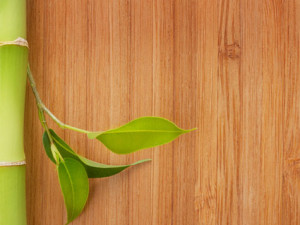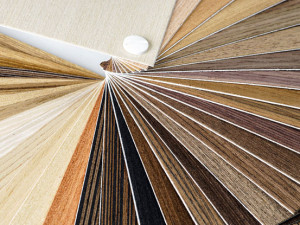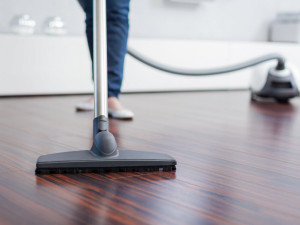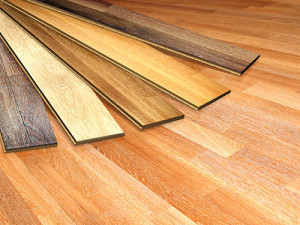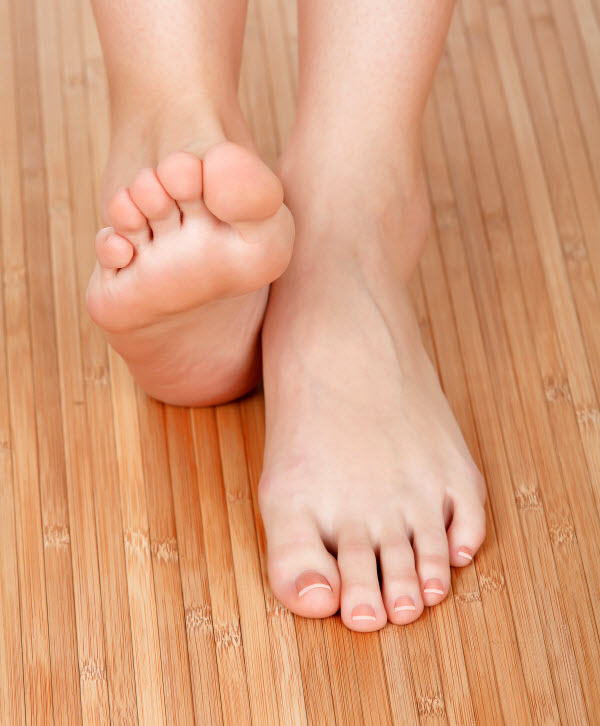
Bamboo Flooring is enjoying a surge in popularity due to its unique look, its eco friendly reputation, its durability and value for money. Traditionally hardwood flooring has been one of the most popular choices for home owners and commercial users alike. The feel of walking on a hardwood floor exudes quality and high end finish. However bamboo flooring is becoming a popular alternative to hardwood and is a testament to scientific and environmental innovation.
At first glance bamboo flooring looks and feels like hardwood. Traditionally bamboo flooring has been available in a light blonde colour with either a vertical or horizontal grain available. However manufacturers of bamboo flooring have responded to the latest decorating trends and developed the technology to achieve almost any colour of bamboo flooring, even colours that replicate the familiar beauty of hardwood. Bamboo flooring also feels very much like timber flooring to walk on. Bamboo flooring is quite thick (around 1.4cm) so it doesn’t have that hollow feel that you might get from thinner laminate flooring. The better quality bamboo floors can even be sanded back and refinished in years ahead if needed in much the same way as hardwood. Textured bamboo flooring is also available to give a more rustic look.
Compared to hardwood bamboo has a very short growing cycle, is grown in dedicated plantation areas, reduces the carbon footprint more than hardwood, requires very little pesticides, herbicides and irrigation and is hypo- allergenic. This makes our nature lovers very happy as it allows us to enjoy the natural beauty of bamboo in our homes without damaging our environment. We do exercise a word of caution here though. Some of the cheaper and lower quality bamboo flooring available do not follow these environmentally sustainable guidelines and take shortcuts in the manufacturing process, so it is important consumers do their research and ensure they only buy reputable products. This will mean paying a little more to ensure you purchase quality bamboo flooring.
So how does the cost of bamboo flooring compare to hardwood? Generally speaking the highest quality bamboo floor will be cheaper than the highest quality hardwood and in the majority of cases bamboo flooring is a slightly more affordable option than hardwood, excluding of course the cheaper quality versions of bamboo flooring available. So relatively speaking bamboo flooring works out to be less expensive than hardwood. However cost is not the only deciding factor. Many consumers simply prefer the look and feel of bamboo flooring and like the idea of doing something good for the planet.
The final factor to consider is the durability of bamboo flooring. Due to the manufacturing process bamboo flooring is very hard, often outperforming its hardwood counterpart. In its natural state bamboo is technically a grass but it is generally considered to be a hardwood. Just how hard it is depends on the type of bamboo. In bamboo flooring the strongest flooring will be made from strand bamboo and if it is strand woven the flooring will be even stronger. Also it is generally best to choose bamboo flooring which is cold pressed and uses stain resistant technology. Although this method takes much longer to bake and costs more, the result is a good quality bamboo floor which should last you as long as 20 -25 years before it needs refinishing. Bamboo flooring is also known for its resistance to water damage and ease of care. It stains and warps much less than hardwood floors and is easy to maintain.
So if you are building or renovating it would be very wise to go to a showroom and have a look at the wide range of bamboo products available. You might actually have difficulty telling the difference between hardwood and bamboo flooring if the bamboo flooring has a traditional look. Just make sure you go to a flooring specialist that uses high quality bamboo flooring such as Quick Step ARC bamboo. You might be pleasantly surprised at the options and value for money available.

